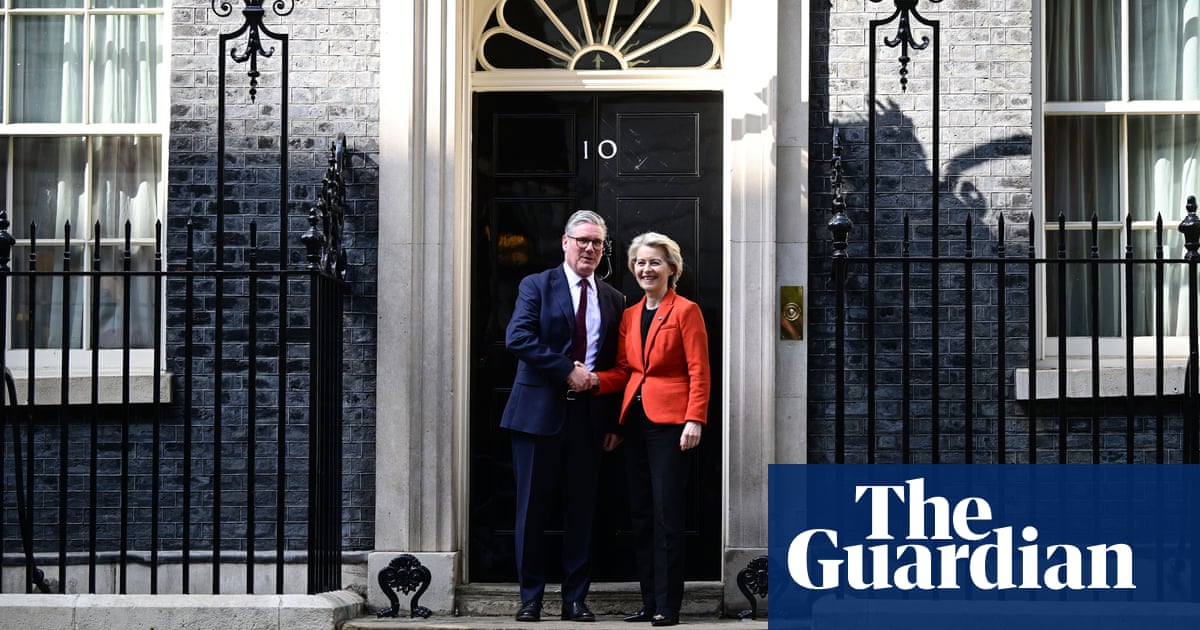The UK is offering the EU a “new strategic partnership” aimed at bolstering trade and presenting a united European front when Donald Trump is threatening to upend decades of transatlantic alignment.
A draft declaration being drawn up by London and Brussels ahead of a UK-EU summit on 19 May points to a “common understanding” on a number of shared interests.
EU ambassadors will meet in Brussels on Wednesday for a briefing from officials who have spent the past few months in a “tunnel” working on the areas where agreement could be reached over the next year.
Adefence and securitypact that would see closer cooperation on Ukraine is top of the shopping list along with migration, which is a hot topic on both sides of the Channel.
The French are determined to carve out new arrangements on fishing but diplomatic sources say there will be no change for the time being.
Several EU capitals are pushing for a“youth experience” programme, which would allow people from the EU to spend at least 12 months in Britain under a reciprocal visa programme that would not add to migration figures.
The draft communique being finessed by officials is designed to be the basis of a political declaration and framework for talks over the range of issues.
“We confirmed our shared principles of maintaining global economic stability and our mutual commitment to free and open trade,” the draft noted. It added that the sides would continue working “on how we can mitigate the impact of fluctuations in the global economic order”.
However, the summit comes as the UK continues tariff negotiations with the US in the hope of carving out a special deal. Britain is facing a 10% tariff, while theEU faces 20%.
Ahead of a meeting with the UK prime minister, Keir Starmer, last week, the leader of the European Commission, Ursula von der Leyen, called for a drive to unlock investment for renewables in the North Sea.
“We are friends. And we are Europeans. It means that we share interests and democratic values. And that we are ready to face global challenges as like-minded partners,” von der Leyen said after their meeting.
Sign up toHeadlines UK
Get the day’s headlines and highlights emailed direct to you every morning
after newsletter promotion
Downing Street declined to comment on the text but said it was in line with the UK’s objectives.
Starmer’s spokesperson said: “The prime minister’s being clear that there are significant benefits to be had by having a better partnership with the EU in terms of jobs, British businesses, reducing trade barriers, driving growth and keeping us safe in an increasingly dangerous world. So you’d expect us to be discussing a wide range of issues with the EU and obviously get an update on that at the summit.
“The prime minister has spoken extensively recently about the benefits of free and open trade and the fact that we’re looking to strengthen alliances around the world to reduce barriers to trade, working with other economies. And that is actually a feature of our discussions, not just with the EU, but the US, India, and other countries as well.”
